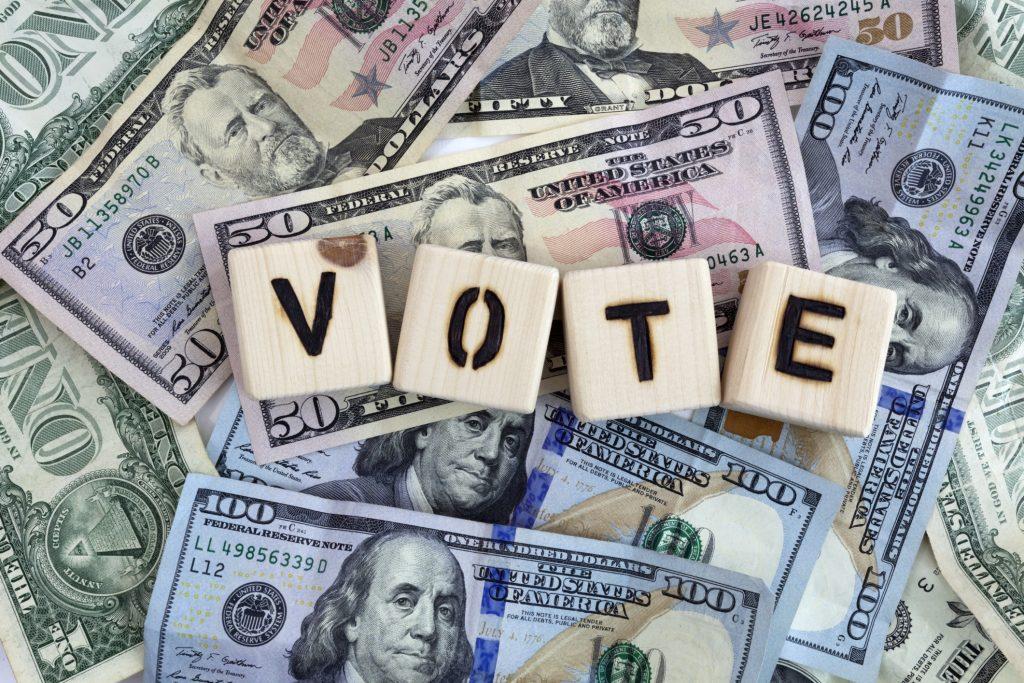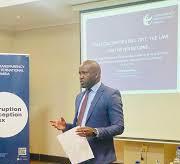TIZ decries unregulated political and campaign funds
… Nachibinga says unchecked money in elections not only hinders protections against undue, corruptive influence on decision-making. including from foreign interests but also prevents citizens from knowing whom their representatives answer to and impedes them from making an informed choice at the ballot box.

By Francis Maingaila
Lusaka (31-03 – 2023 – Zambia24) – Transparency International Zambia (TIZ) has observed that unregulated political and campaign funds will aid some unscrupulous individuals to buy their way into political offices and then fail to deliver to the expectations of the electorates.
TIZ Democratic Governance Lead, Chimuka Nachibinga told journalists at a third media briefing on the political party integrity project that TIZ considers the issue of political party and campaign financing a very important political governance issue, which requires attention from all stakeholders.

He said preliminary results from the cost of politics study revealed that money is a fundamental part of politics, and political parties require funding for the campaign.
He regretted that when the flow of money becomes opaque, unregulated, and concentrated in the hands of a few, it can undermine the fairness and integrity of our democratic process.
Without proper safeguards and limits on political financing, Nachibinga observed there is a risk of losing the trust of the people in the political system and eroding the principles of equality, fairness, and accountability that form the cornerstone of every society.
He said unchecked money in elections not only hinders protections against undue, corruptive influence on decision-making. including from foreign interests but also prevents citizens from knowing whom their representatives answer to and impedes them from making an informed choice at the ballot box.

Worse, it gives the well-connected. with
access to state resources, or affluent donors an edge over candidates with less access to financing – mostly women.
He said the study also found that the cost of doing politics in Zambia was getting less affordable becoming more expensive to access and do.
He observed that the major challenges declared facing by many candidates were the costs of both seeking a nomination, at times prohibitive registration fees, and running a campaign, including handouts to voters and ‘constituency services that further entrench client list politics.
He said higher campaign costs without financial levelers make parties not just elitist but also vulnerable to corruption and ultimately state capture.
He said we must explore the reasons why the political party and campaign financing legislation
Is necessary, the challenges the country faces in enacting such laws, and the potential benefits and drawbacks of
different approaches to this complex issue.
He said Political party and campaign financing is cardinal for several reasons, some including ensuring transparency, political party, and campaign financing legislation require political parties and candidates to disclose the sources of their funding and the amount of money they receive.
He said transparency helps prevent corruption and ensures that the public knows who is supporting a candidate or political party and limit the influence of money in politics.
Without proper regulations, Nachinga observed that wealthy individuals and corporations can exert an outsized influence on the political process by providing large donations to candidates or parties.
He said the campaign finance legislation can limit the amount of money that can be donated and can prevent corporations and other entities from making unlimited contributions.
He was often the view that campaign finance legislation will promote fairness: Political party and campaign financing legislation can help level the playing field by ensuring that all candidates have access to the resources they need to run a competitive campaign.
This can help prevent the wealthiest candidates from dominating the
political process.
“To prevent corruption: Without regulations on campaign financing, politicians and political parties can be influenced by wealthy donors who provide financial support in exchange for political favors, “
He said limiting the amount of money donated to the campaign and requiring transparency in campaign finance legislation will help prevent corruption associated with politics.
As part of this robust evidence-based advocacy strategy, TIZ has conducted a study on “Elections and Money: Perspectives from Members of Parliament in Zambia.” The purpose of
this study is to estimate the cost of politics in Zambia, identify the cost drivers, and collect perspectives
from Members of Parliament on the need for political party financing and campaign spending reforms in
Zambia
The result of this costing study shows that there are high financial demands for pre-adoption; adoption and nomination; campaign; and post-election.
He said the cost of political study established that the average estimated
winning the 2021 elections, as a member of parliament, was K2.64 million.
He observed that spending was highest during pre-adoption (at K984, 044) and followed by post-election (827.370) and the campaign period (ho;643).
He said the gender premium for winning an election was estimated at K919, 851 while the disability premium was estimated at K581,309.
Further, the study revealed that young candidates aged less than 35. candidates with business backgrounds and those with incomes above K200,000 spent more than other respective candidates.
In terms of a political party, the UPND candidates spent about K2.9 million on average as compared to K2.3 million spent by PF candidates during the 2021 general elections.
He said the finding is suggestive of discriminatory spending during the 2021 general elections and this justifies the demand for the call to regulate election spending to a level playing field for all candidates.
